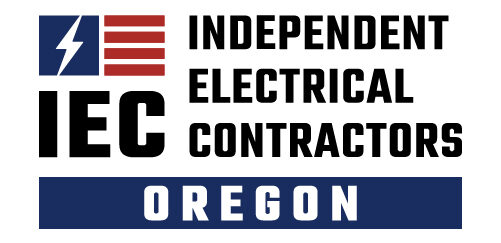APPRENTICESHIP - LIMITED ENERGY
Employers
An essential component of an apprenticeship program is on-the-job training, where apprentices learn the intricacies of their trade by working hands-on in the field under the supervision of licensed journey workers. This element of training is only possible with the participation of employers in the training process. Training agents are employers approved by the committee and the Bureau of Labor & Industries to employ, train, and supervise apprentices according to approved industry standards.
Benefits of Apprenticeship for Employers
- Highly trained workers are more productive and have better working habits
- Classroom study helps apprentices learn the trade and work more safely
- Apprentices see the time and energy spent in the program as a long-term investment in their careers, reducing labor turnover
- Provides employers with workers who are versatile and can adapt to new technologies
- Provides employers with a screened pool of applicants to hire from

Minimum Requirements for Training Agents
• CCB License – Employers must possess a valid CCB license demonstrating that they have been a licensed Oregon Electrical Contractor for at least 6 months prior to applying or provide a letter verifying CCB exempt status.
• CLE/C Licenses – Employers must possess an Oregon Electrical license (CLE# or C#), allowing them to pull permits or provide a letter verifying CLE#/C# exempt status.
• Worker’s Compensation – Employers must maintain workers’ compensation insurance (non-exempt status) or provide a letter verifying their status as an exempt independent contractor.
• Licensed Journey Worker on Staff – Employers must employ at least one full-time licensed journey worker on staff for the supervision of each apprentice.
 How to Apply for Training Agent Status
How to Apply for Training Agent Status
Interested employers may contact the apprenticeship director, Eva Sizelove, for an application packet. Potential training agents must submit the completed packet, copies of documentation verifying that they meet the minimum requirements, and the application fee to the apprenticeship department 5 days prior to the next committee meeting. A designated apprenticeship contact person from the employer must also complete an orientation with the apprenticeship director as a part of the application process.
Eva Sizelove, Apprenticeship Director, Area 1 Limited Energy
eva@iecoregon.org
(503) 598-7789 ext. 103
Through the FlashPoint database, your company can review apprentice work reports and check on their progress in the program.
Wage Scale
Training agents are required to pay their apprentices at minimum the percentage of average journey worker wage that corresponds to their current period (level) in the apprenticeship program.
Class A Limited Energy Technician: $41.30
Effective June 1, 2025 – May 31, 2026
| Period | Percentage | Wage | Minimum OJT | CPR/First Aid Card | Minimum Related Training | ||||
| 1st year apprentice | |||||||||
| 1st | 50 % | $ 20.65 | 0 | N/A | 0 | ||||
| 2nd | 58 % | $ 23.95 | 500 | Current | 48 hours (Complete 1 Class) | ||||
| 3rd | 63 % | $ 26.02 | 1500 | Current | 96 hours (Complete 2 Classes) | ||||
| 2nd year apprentice | |||||||||
| 4th | 68 % | $ 28.08 | 3000 | Current | 192 hours (Complete 4 Classes) | ||||
| 5th | 73 % | $ 30.15 | 3500 | Current | 240 hours (Complete 5 Classes) | ||||
| 3rd year apprentice | |||||||||
| 6th | 79 % | $ 32.63 | 5000 | Current | 336 hours (Complete 7 Classes) | ||||
| Referred To Test | $ 32.63 | 6000 | Current | 432 hours (Complete 9 Classes) | |||||
Class B Limited Energy Technician: $37.25
Effective June 1, 2025– May 31, 2026
| Period | Percentage | Wage | Minimum OJT | CPR/First Aid Card | Minimum Related Training | ||||
| 1st year apprentice | |||||||||
| 1st | 50 % | $ 18.63 | 0 | N/A | 0 | ||||
| 2nd | 60 % | $ 22.35 | 500 | Current | 48 hours (Complete 1 Class) | ||||
| 3rd | 65% | $ 24.21 | 1500 | Current | 96 hours (Complete 2 Classes) | ||||
| 2nd year apprentice | |||||||||
| 4th | 75 % | $ 27.94 | 3000 | Current | 192 hours (Complete 4 Classes) | ||||
| Referred | to Test | $ 27.94 | 4000 | Current | 288 hours (Complete 6 Classes) | ||||
To access a copy of the wage scale, please CLICK HERE.
